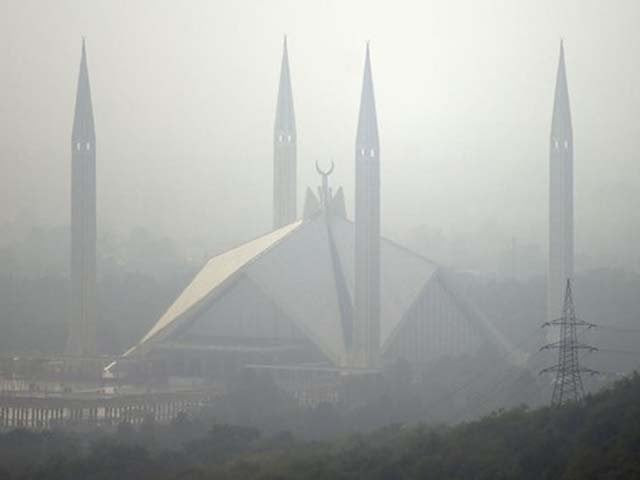Twin cities’ rankings plummet as smog worsens
Rawalpindi slips to 153rd place on Air Quality Index, Islamabad stands at 139th spot

Smog in the twin cities has caused both cities’ ranking to deteriorate in the Air Quality Pollution Index, with the district administrations of both cities issuing new directives to the agencies concerned for strict action to control smog.
According to the index, Rawalpindi’s air pollution has steadily increased and ranks at 153rd, Islamabad ranks 139, Lahore 350, Faisalabad 375, Gujranwala 172, Attock 112, Jhelum 123, Gujarat 152, Multan 170, and Murree is at 78. Air pollution in Rawalpindi is increasing daily, while the air quality of Islamabad is slightly better with the city’s suburbs registering an even healthier quality.
The Rawalpindi-Islamabad Department of Environmental Protection, Traffic Police, and Secretary Rawalpindi Transport Authority (RTA) have stepped up operations against smoke emitting vehicles, brick kilns, stone crush machines, and factories.
Environment Department Deputy Director Rafiq Ahmad, Environment Laboratory Senior Research Officer Amin Baig and Inspector General Inamul Haq told The Express Tribune that there was a zero-tolerance policy against smoke-emitting vehicles.
Read Govt curbing smog, pollution: minister
As many as 61 smoke-emitting vehicles have been restricted from operating, and challans were issued for 41. Meanwhile, 29 stone crushers were also sealed, while 35 kilns were closed in the twin cities. Cases have been registered against nine tire shops for burning tires and extracting iron wires from them.
There are six degrees of air quality. The ‘zero to 100’ degrees is labelled green, ‘101 to 200’ light green and said to be slightly damaged, ‘200 to 300’ is labelled yellow and widely believed to be harmful because it exacerbates respiratory and lung diseases, ‘300 to 400’ is orange and very dangerous, ‘401 to 500’ is red and causes extreme diseases, and ‘500 and above’ is maroon and believed to be the most dangerous for human life.
To control the devastating levels of smog, a complete shutdown of smoke-emitting vehicles, motorcycles, and brick kilns is the requirement of the hour.
On the other hand, Environment and Air Quality Expert Irshad Ramey opined that the worsening air quality would persist until the twin cities receive winter rains.
Published in The Express Tribune, November 14th, 2021.



















COMMENTS
Comments are moderated and generally will be posted if they are on-topic and not abusive.
For more information, please see our Comments FAQ